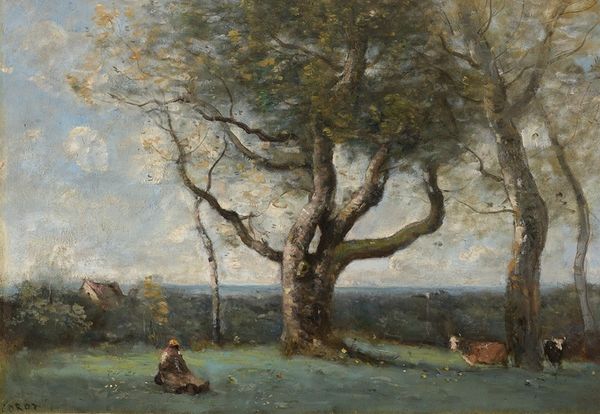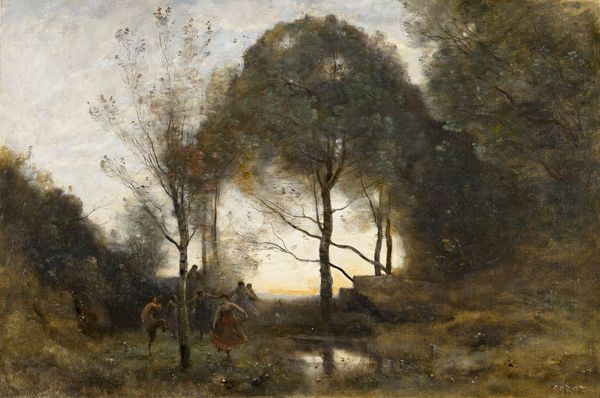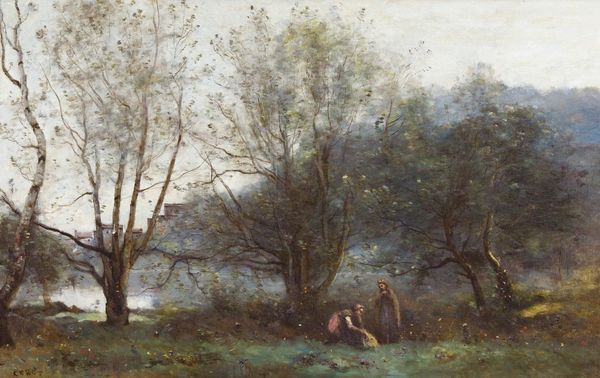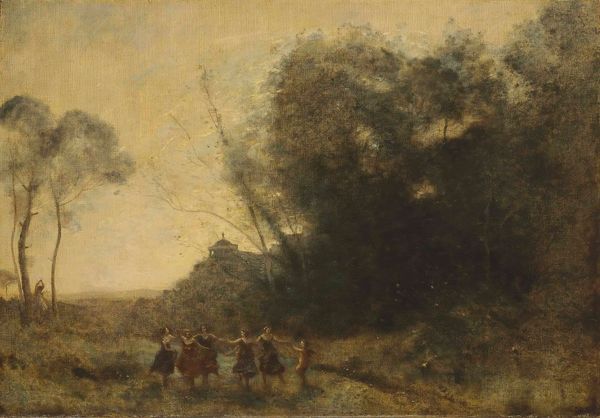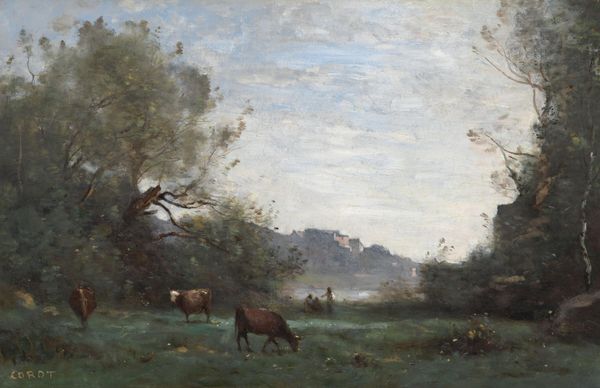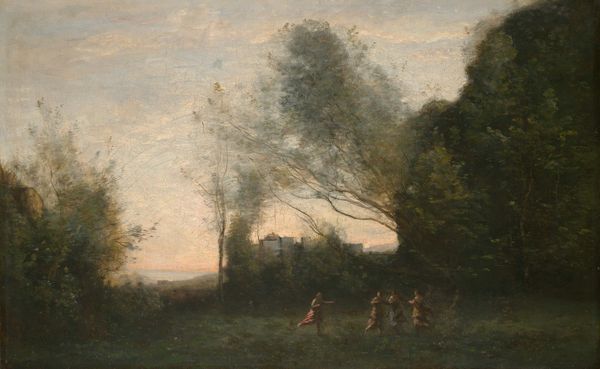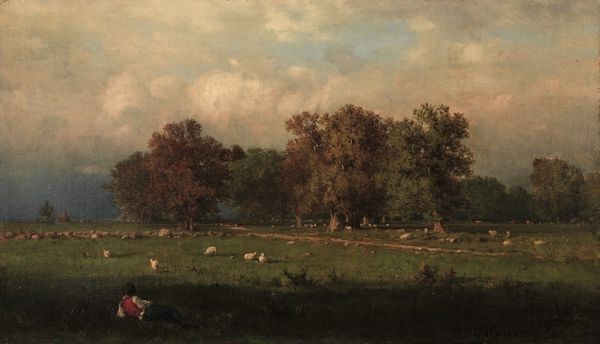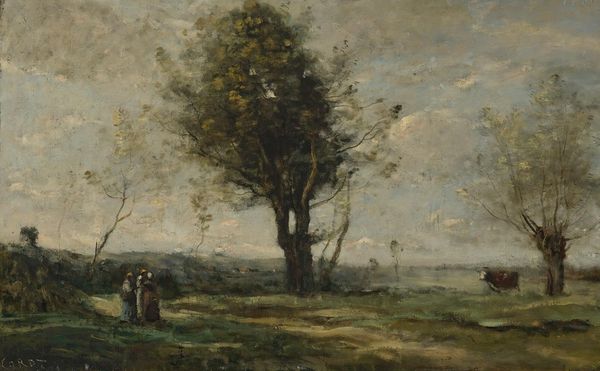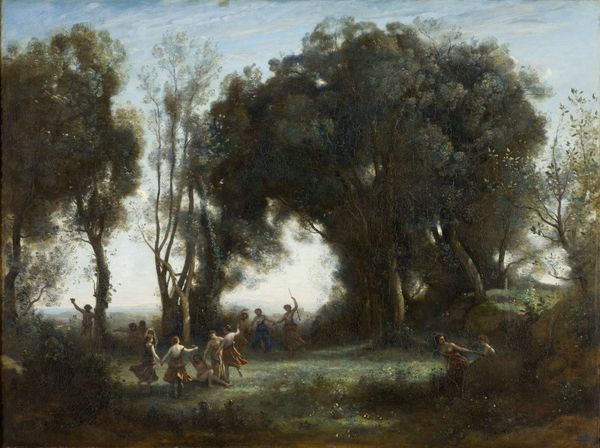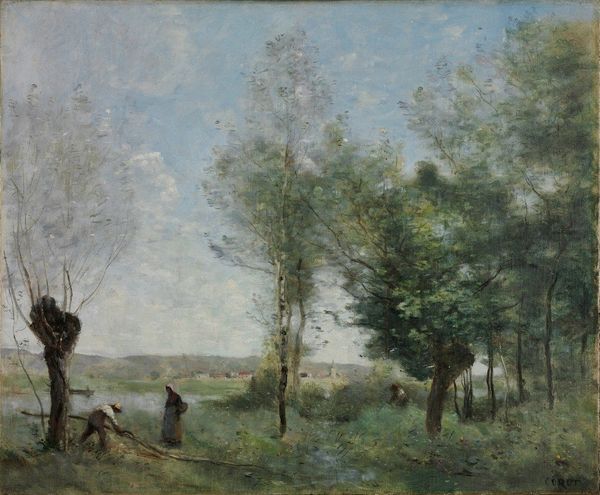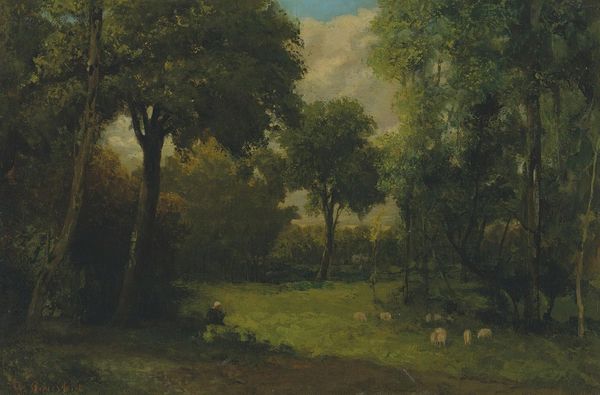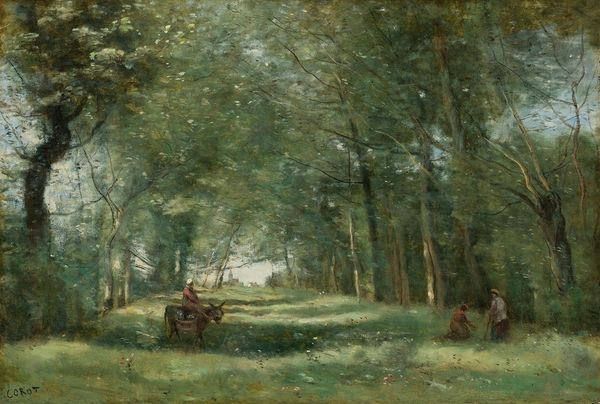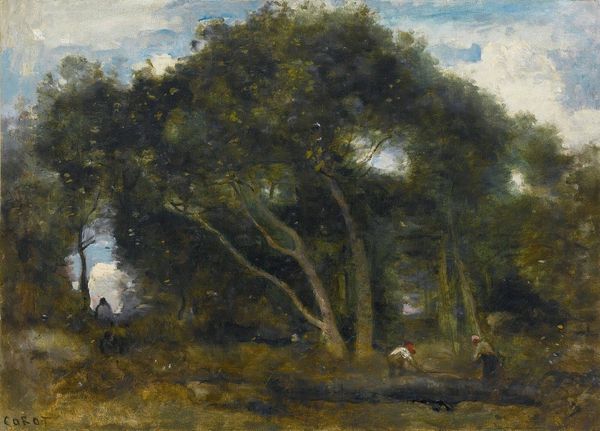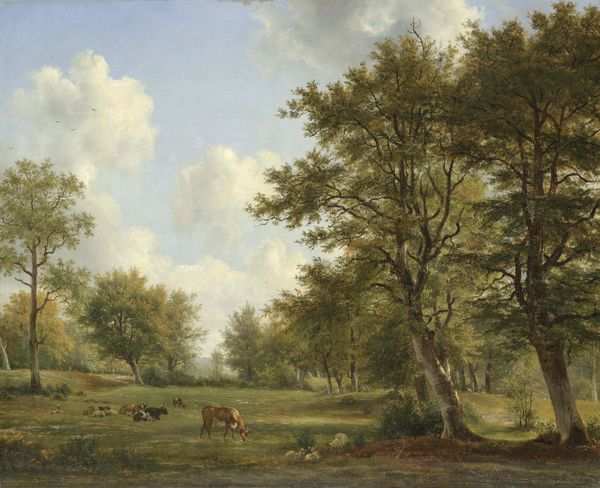
painting, oil-paint
#
painting
#
oil-paint
#
landscape
#
figuration
#
oil painting
#
romanticism
#
genre-painting
#
nude
Copyright: Public Domain: Artvee
Curator: Camille Corot's "Ronde D’amours; Lever Du Soleil," painted with oils, presents us with a romanticized landscape inhabited by cherubic figures. What is your first impression? Editor: It strikes me as incredibly idealized. The scene feels intentionally crafted, almost dreamlike, with the children seemingly untouched by the realities of the world. It also feels quite exclusive and eurocentric to have the central focus around this aesthetic. Curator: Precisely. Corot, working within the Romanticism movement, often aimed to evoke feelings of nostalgia and innocence. The nude figures echo classical themes. I see this piece as an attempt to represent a kind of primordial harmony between humanity and nature, a world yet unspoiled. But it also feels a bit sanitized, a constructed, heteronormative notion. Editor: Absolutely. While technically masterful, its focus on idealized, desexualized bodies can be read as a reflection of restrictive social norms of the time, further embedding a certain ideology about purity. The “natural” isn’t really natural, but a landscape made into something exclusionary. What purpose does it play beyond projecting onto this idealized version of childhood? Curator: Perhaps that’s precisely its function – to present a visually soothing ideal, even if it's ultimately unattainable or misleading. It does have roots to similar imagery within mythological and religious contexts, and thus provides cultural continuity for those who view this art, continuing those associations. It also perpetuates them for future viewers. Editor: And it’s those very continuities that we need to critically examine. Does presenting innocence this way negate the complexities of childhood, of history itself? Who benefits when we continue to create these idyllic fantasies divorced from real experience? It runs the risk of making children instruments of ideology, reinforcing a desire to go "back to simpler times" which overlooks significant political inequalities. Curator: An astute observation. It reveals the layered and, at times, contradictory meanings that images can hold. Editor: Yes, images not only mirror our culture, but actively help in its shaping. And this type of cultural construction can often reinforce established, and unequal, power dynamics.
Comments
No comments
Be the first to comment and join the conversation on the ultimate creative platform.
